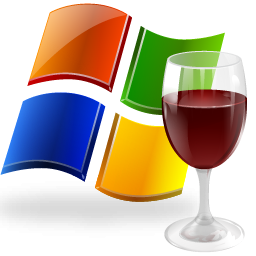As everyone knows, generally Linux has never had a strong argument against Windows OS when it comes to gaming. 9/10 people will say they use something like Windows 7 or XP for their gaming (depending on the DirectX version being used/required).
Due to the advancements in WINE, we have seen of late a lot of game studios hopping on the *nix bandwagon (most notably Valve Software). For those not fully up to speed with what WINE is, here is an excerpt from their website:
“Wine (originally an acronym for “Wine Is Not an Emulator”) is a compatibility layer capable of running Windows applications on several POSIX-compliant operating systems, such as Linux, Mac OS X, & BSD. Instead of simulating internal Windows logic like a virtual machine or emulator, Wine translates Windows API calls into POSIX calls on-the-fly, eliminating the performance and memory penalties of other methods and allowing you to cleanly integrate Windows applications into your desktop.“
Wine began in 1993 under the initial coordination of Bob Amstadt as a way to support running Windows 3.1 programs on Linux. Very early on, leadership over WINE’s development passed to Alexandre Julliard, who has managed the project since. Over the years, as the Windows API and applications have evolved to take advantage of new hardware and software, WINE has adapted to support new features, all while being ported to other OS’s, becoming more stable and providing a better user-experience.
An ambitious project by definition, work on WINE would steadily continue for 15 years before the program finally reached v1.0, the first stable release, in 2008. Several releases later, WINE is still under active development today, although there is more work to be done, millions of people are estimated to use WINE to run their Windows OS software on Linux.
WINE (Wine Is Not an Emulator) is formed as the basis for a few other pieces of “Compatibility Layer” software, such as:
- Codeweavers Crossover
- Transgaming Cedega
These are the main 2 utilities that use WINE code in their base. There are more we could list, but its probably outside the scope of this review. A bit of research into gaming now, Windows OS vs Linux, leads us to a few sites which can help shed light on the subject a bit more:
- http://www.gamingonlinux.com/index.php
- https://www.linux.com/news/software/linux-kernel/593155-a-low-latency-kernel-for-linux-gaming
- http://www.anandtech.com/show/2897
- http://www.phoronix.com/scan.php?page=category&item=Linux+Gaming
As you can see by the links above, there is sufficient people that agree in its current state, Linux is a viable platform for todays gaming. And then there is the Pro Windows OS camp, that will argue that Windows OS has always got the better platform for games today and games due out.
In some ways this is true, but there are numerous benchmarks of some games which have shown that Linux can be better at delivering a quality gaming experience, rather than its Windows counterpart:
- http://dev.dota2.com/showthread.php?t=97013
- http://www.phoronix.com/scan.php?page=article&item=ubuntu_win7_ogl&num=1
- https://www.movesinstitute.org/2012/08/02/better-game-performance-on-linux-than-windows
One could go on for hours about how Linux beats Windows OS r this, that or the other. But to each their own. Windows OS will always have its place in our society for certain tasks whereby it performs better than others. The same goes for gaming. What one person finds works well for them, the other may find the exact opposite.
Plus, the moment you mention the Linux word to some people, they immediately think command-line, not very user friendly! True, it was like that at one point, but compare where we are now to where we were at 10 years ago and you will notice a drastic improvement in the way we conduct ourselves with our favourite OS of choice.
For those who have not considered a Linux machine for gaming, I say, why not? For those already there, I say, welcome!
I hope this gives a little bit more of an insight into where Linux gaming has come up to now. And of course, like the song goes “Things, can only get better!”
Peace out geeks!





